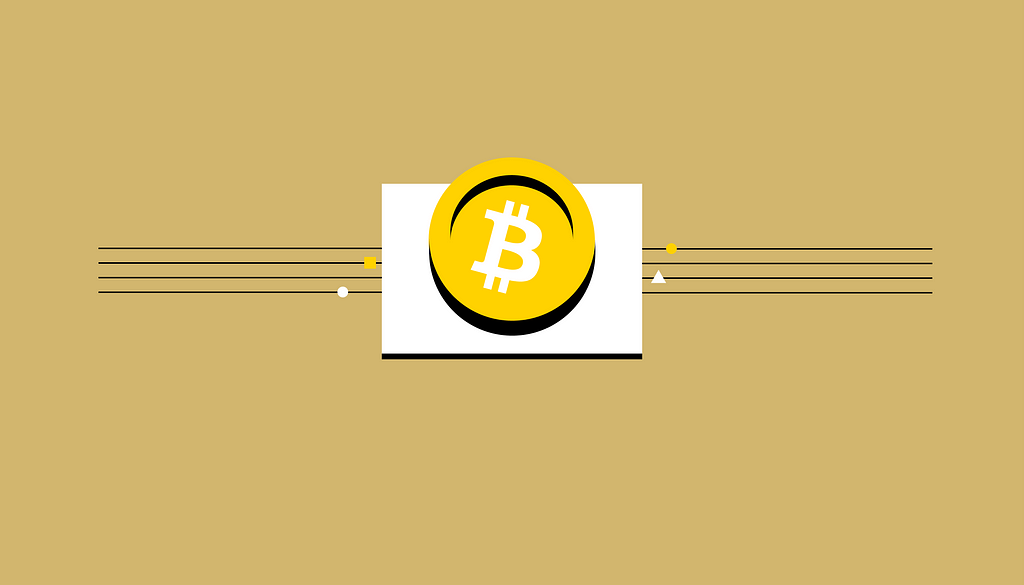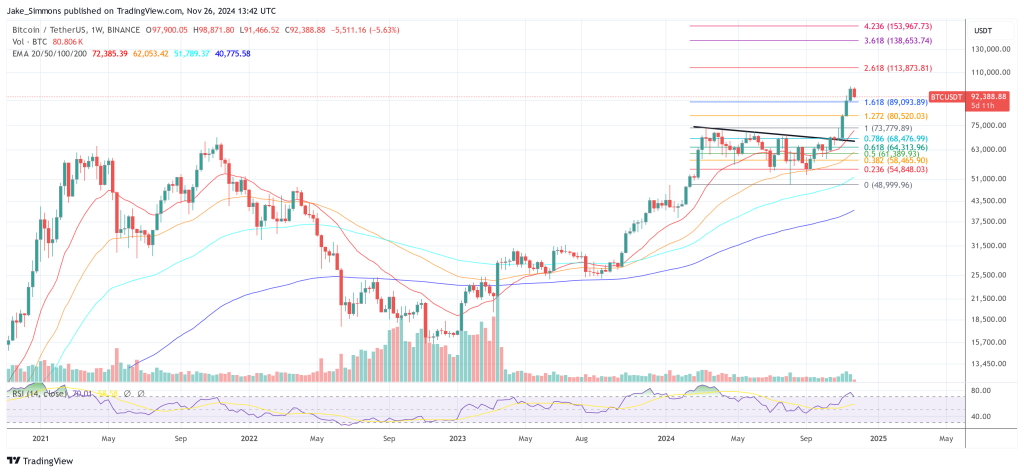
By Mark Nesbitt
Crypto is a rapidly growing space, with many views on how it might evolve. This series explores various ideas on crypto’s future and does not necessarily reflect the view of Coinbase.
TLDR: This post explores a typical evolution of understanding Bitcoin, how its most common criticisms can actually be strengths, and why its value proposition is unique among cryptocurrencies.
Bitcoin: Introduction and disillusionment
Many people first encounter cryptocurrency through bitcoin. They learn about private keys, mining, consensus mechanisms, and decentralization. They understand and appreciate the uniqueness of Satoshi’s invention, and the potentially transformative impacts of non-governmental money. It’s a fascinating discovery.
Not long after this “orange pill” phase, our new bitcoiner will inevitably encounter a fresh crop of criticism of bitcoin. These aren’t the standard “nocoiner” criticisms, but rather these are the “coiner” criticisms, and unlike many nocoiner critiques, they can’t be dismissed as uninformed. These criticisms are made by people who understand Bitcoin. They are sophisticated and persuasive. Our new bitcoiner finds them compelling. The bitcoiner’s eyes are opened to the many other exciting cryptocurrencies waiting in the wings to eat Bitcoin’s lunch. The new bitcoiner has now entered the “bitcoin is boring” phase¹.
Bitcoin is boring
The criticism usually includes many of the following arguments:
- Bitcoin’s proof of work consensus mechanism is inefficient and inferior to proof of stake
- Bitcoin is too slow — other chains reach finality much faster and therefore will support many more compelling use cases
- Bitcoin can’t possibly succeed due to the lack of onchain privacy
- Bitcoin’s lack of an expressive Turing complete programming language makes it less useful than other cryptocurrencies
- Bitcoin is stagnant; there is no meaningful innovation in bitcoin, which means it is sure to be outcompeted
- Bitcoin’s limited onchain transaction throughput will prevent it from being useful
The hot debate among the “bitcoin is boring” crowd is not about whether Bitcoin will last. They are all certain it won’t. The debate is about which among ETH or the mob of ETH-killers (let’s collectively label all these as the “web3 cryptos”) will first eclipse bitcoin. But regardless of who, how, or when, bitcoin WILL be eclipsed. It’s a dead coin walking, carried by nothing more than inertia, name recognition, and the foolishness of the Eternal September of new users flooding into crypto. Sooner or later, the world will realize this, and bitcoin will fade into irrelevance as a pioneering footnote like so many other “firsts” throughout the history of technology.
The view can be summarized as: “Bitcoin will be outcompeted.”
Nothing remotely competes with Bitcoin
There’s a huge oversight in this line of reasoning.
Proponents believe bitcoin is in competition with web3 cryptos. It’s not. It is trying to be one thing above all else: digital gold.²
Nearly every other actively developed cryptocurrency besides bitcoin has the same product vision as Ethereum: create a decentralized application platform, often called “web3.”³ They are trying to build the next internet, to enable “unstoppable apps”⁴, not build digital gold.
Once Bitcoin’s goal is understood, many of the purported weaknesses laid out in the “bitcoin is boring” view in fact reveals themselves to be strengths:
- Digital gold must be transferable. Proof of work has thus far been highly censorship resistant.
- Digital gold must be decentralized. Ensuring that a global network can consistently reach consensus without trusted parties is crucial.
- Digital gold must be scarce. The transparency of bitcoin’s ledger ensures easy accounting of the total supply.⁵
- Digital gold must be safe. Safety is aided through simplicity, driving a need to eliminate unnecessary complexity.⁶
- Digital gold must be stable. Constantly changing rules are disqualifying.
- Digital gold must be verifiable. Validation of the asset must be cheap and accessible.
The realization that bitcoin has a fundamentally different goal from the web3 cryptos reveals a crucial point: Bitcoin has no meaningful competitors. The web3 crowd is scratching and clawing at each other, while literally no one else is trying to play bitcoin’s game. Bitcoin is sprinting as fast as it can to get years under its belt and build the credibility required to be digital gold — a process that has no shortcuts. It can only do this by being stable, predictable, and functional over many years. For any competitors that do decide to challenge Bitcoin, they will have to overcome Bitcoin’s enormous 13 year head start. Currently, no one else has yet entered the race.
Bitcoin is boring, v2
There’s a second form of the “bitcoin is boring” argument, often a convenient fallback for those who belatedly grasp the shortcomings of the first argument. This form of the argument sees a far grander vision in crypto than “mere” digital gold, and goes something like this:
Digital gold!? Think bigger! Imagine disintermediating Facebook, Amazon, or Google. If the most innovative thing you can think to do is to digitally replicate the refinement of a largely useless metal that people value primarily due to centuries of superstition, prepare to eat my dust.
The proponent of the second version of “bitcoin is boring” might respond to the previous section with “Ok fine, so nothing competes with bitcoin because bitcoin is playing a different sport. But I’m still right, because bitcoin is shown on ESPN 8 while web3 is playing in the superbowl. So congrats on your win in the peewee league.”
The view can be summarized as: “Blockchains can be far more impactful than mere digital gold.”
Digital gold matters, and is here today
There’s nothing wrong with a moonshot. Maybe web3 can provide a democratic revolution for the internet. That’s an exciting possibility.
The error comes from dismissing bitcoin just because you also see value in something else. These are not mutually exclusive futures. Let’s review the impact of digital gold: Bitcoin is a form of value that a government cannot debase or easily seize, and it can be transferred globally with nothing but an internet connection. Such an invention is a big deal. The IMF is rightfully fearful of the threat to fiat currencies posed by nongovernmental money. The existence of web3 projects does nothing to change this potential.
In addition to an honest and thoughtful recognition of the massive impact of true digital gold, there’s another key point to consider: Bitcoin has shipped. Digital gold exists right here, right now. It is ready for investors, financial institutions, and nations.⁷
In contrast, none of the web3 projects have shipped anything close to their final product.⁸ Their current state should be considered as a successful proof of concept for what web3 could become. Readers can know that I’m right because of a simple observation: All the web3 projects have ambitious roadmaps that invariably include crucial breakthroughs to deliver results that have not yet been demonstrated. Will proof of stake effectively resist censorship? Will sharding enable true decentralized verification at scale? Will dev teams be able to step away from being critical points of centralization? Will L2s really allow for trustless scalability? Of course every web3 project insists that success in these matters is a certainty, that these questions will surely be answered in their favor. Perhaps. A truly independent minded skeptic is forced to conclude that only time will tell the answers to these questions.
Leaving the phase
Moving on from “bitcoin is boring” does not make one a bitcoiner.⁹ One can leave the phase and still run the entire gamut: bitcoin maximalist, multicoiner, or bitcoin critic. The hallmark of exit is ceasing to be dismissive of bitcoin.
Maybe bitcoin’s goals are not as interesting to you as web3 goals. But even the biggest web3 proponent has to acknowledge:
- Bitcoin is not in competition with any other cryptocurrency. It is crushing its mission to be digital gold while literally no other project is even trying.
- Digital gold matters, and is here today.
Recognizing those two things clearly drives the following conclusion: Bitcoin is not boring.
Footnotes
- I call it a phase. That doesn’t mean that everyone goes through it, or that everyone leaves it. It’s like being rebellious in your teenage years — some teens don’t do this, and some adults have clearly never moved out of it. But enough people both enter and leave to call it a phase.
- Not P2P electronic cash. The blocksize war had a very clear outcome. See the next footnote for more on electronic cash.
- There are exceptions. Some cryptos aim to deliver a specific decentralized application, like object storage. Others aim to be cash. Interestingly, the “cash cryptos” can struggle with an identity crisis, since the high onchain transaction throughput requirements for payments also make the chain potentially suitable for decentralized apps. Isn’t “the new decentralized internet” more exciting than “the new decentralized venmo?” The temptation is irresistible, and they implicitly begin moving towards “web3.” Consider the OG cash crypto, Bitcoin Cash.
- Unless a bunch of insiders lose a lot of money when the flagship app gets hacked. Then the app should be stopped, of course.
- Privacy coins inherently suffer the risk of undetectable inflation vulnerabilities. These are not merely theoretical — they have happened to both ZEC and XMR, the two most prominent privacy coins. And don’t forget Bitcoin Private, a fiasco only made possible by the fact that BTCP is a privacy coin.
- Solana recently suffered 17 hours of downtime, earning derisive criticism from many bitcoin maximalists. Interestingly, instead of reacting as if a catastrophe had occurred, a Solana developer downplayed the significance of the failure, and even suggested it could happen again. This would be absurd for bitcoin, and brought howls from the bitcoin crowd. But his view actually makes sense for what he’s building — sometimes web platforms go down. AWS recently suffered almost a day of downtime. While bad, it happens. This is a terrific anecdote for how bitcoin and web3 are playing entirely sports — 17 hours of downtime would be a disaster for digital gold, but not for an app platform.
- This doesn’t mean that there’s nothing that can be added to bitcoin. Many improvements are consistent with the goal of being digital gold, such as taproot or improved transaction broadcast logic. But those are refinements to a product that has already cracked the core of its problem, and has delivered its key promise.
- This tweet captures it perfectly: “We own bitcoin because it doesn’t change. We own ethereum because it does.” Ethereum can, should, and will change. Digital gold absolutely should not.
- This is not a maxi manifesto. I would expect that most well informed web3 proponents would agree with most of what I’ve said here, perhaps with the exception of the skepticism about the ease with which they’ll achieve their roadmaps. Nothing in this article suggests that the web3 cryptos have the wrong objectives, or that they can’t or won’t succeed. Nothing even suggests that the web3 objectives aren’t more exciting or transformative than the digital gold objective. Nevertheless, when comparing them to one another, it’s important to point out that the objectives are different. In addition, the web3 cryptos have not yet shown that they can build everything they need to deliver on their objective. Consider watching Andreas Antonopolous’s talk: The Lion and the Shark.
Perspective: Bitcoin is not boring was originally published in The Coinbase Blog on Medium, where people are continuing the conversation by highlighting and responding to this story.

You can get bonuses upto $100 FREE BONUS when you:
💰 Install these recommended apps:
💲 SocialGood - 100% Crypto Back on Everyday Shopping
💲 xPortal - The DeFi For The Next Billion
💲 CryptoTab Browser - Lightweight, fast, and ready to mine!
💰 Register on these recommended exchanges:
🟡 Binance🟡 Bitfinex🟡 Bitmart🟡 Bittrex🟡 Bitget
🟡 CoinEx🟡 Crypto.com🟡 Gate.io🟡 Huobi🟡 Kucoin.



















Comments